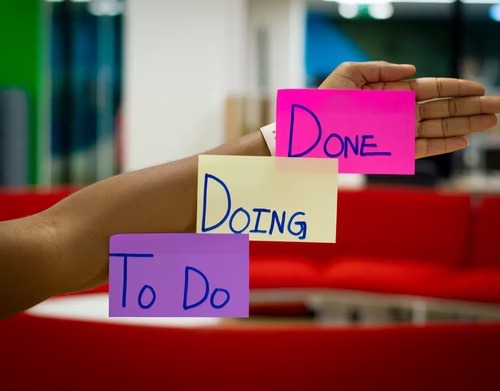The technique of managing and scheduling how much time to devote to various activities is known as time management. Each of us has 24 hours in a day. However, why is it that some people seem to be able to make the most of every moment of the day? They just do not have the ability to freeze time, believe it or not. They did, however, learn how to handle their time well and most of them are using a trusted time tracking app. Do you want to learn how to grasp time management as well? Begin by implementing these time-management strategies.
Effective Time Management Tips
1. Recognize That Time Management Is a Figment of Your Imagination
The first thing to grasp about time management is that there are only 24 hours in a day, no matter how well planned we are. There is no such thing as time. All we have control over is ourselves and how we spend the time we have. This is very appreciated. Internalize what you’ve learned. And then go on to the following tip as soon as feasible.
2. Find out How Much Time You’re Wasting.
Many of us are victims of time-wasters who waste time that could be spent doing something more beneficial. What time bandits do you have? Do you waste too much time perusing the web, reading emails, posting on Social media, messaging, or taking personal calls?
When it comes to this topic, the first step is to figure out where your time is truly spent. You might think that sending emails takes only 30 minutes, but in actuality, it takes up an hour from your day.
3. Each task should have a time restriction.
Setting a time limit for each work task has helped me avoid being sidetracked or stalling. Allow yourself two hours to create a post for my blog, for instance. So, if You start at 8 a.m., try to finish by 10 a.m.
4. Using a To-Do List Wisely
All goals and projects are composed of smaller components that must be completed in order for the goal or project to be completed. Make to-do lists for each objective and project, outlining all the specific tasks that must be completed.
Simultaneously, there may be disruptions that may prohibit you from finishing a task. Make a point of constantly coming to and finishing these activities once you are able to. This can require limiting the number of projects you work on at any given moment.
5. Planning Ahead
Establish goals that are both attainable and measurable. When setting goals, use the SMART technique. Getting up without such a plan for the day is among the worst mistakes you can make. You roam aimlessly and start taking care of more unimportant tasks instead of concentrating on what actually matters. As a result, you must always plan ahead of time;
- Preferably the evening prior. Invest the last 15 minutes of your workday organizing your workplace and making a list of your most critical items for tomorrow.
- This is the first thing I do in the morning. Write down the three or four most urgent and critical issues that need to be handled today as your morning ritual and work on them when you’re highly productive.
Make a list of project deadlines, as well as tasks that are required to complete the entire project, and schedule each in your calendar.
6. Prioritizing
Prioritizing tasks should be done based on their importance and necessity. Examine your daily tasks, for example, and determine which of them are:
- Important and time-bound: As quickly as feasible, complete these tasks.
- Decide when you’ll finish these tasks, as they’re important but not urgent.
- Outsource certain chores that are urgent but not important if at all possible.
- Since they are neither urgent nor vital, put them aside for later.
7. Break Between Tasks
It’s more difficult to stay focused on the task when you’re doing a lot of activities without taking a break. Schedule in downtime in between tasks to have yourself feeling rejuvenated for the next task. Consider taking a quick nap, taking a stroll, or meditating.
8. Remove Any Chores or Activities That Aren’t Absolutely Necessary.
Excessive activities or duties must be eliminated. Removing non-essential activities allows you to devote more time to things that are truly important to you.
Bonus Point: What you Eat Matters
Dieting is often ignored as a key player in how productive you can get. It shouldn’t, research has proven that the nutrients that an individual consumes influence greatly the amount of time one can put into executing a task or more.
If you need to carry your food around or even just store them in better packaging, consider getting the best quality you can get at an affordable price. Buying spout pouches wholesale in Delhi has in the past proven to offer the most competitive rates.
The Bottom Line
Productivity requires much more planning than you’d think, however, it is broken down into simple tasks as you have seen in the article above. A good working environment can also be a huge contributor to your productivity, and whether you’re working from home, or the office, consider buying a good working chair, some good LED lighting for your workstation, and keep yourself well energized with a good diet.
Finally, in the spirit of hygiene and staying safe from contaminants, get yourself some hand sanitizers for use in and around working environments. With that said, you’d better get back to working on your productivity; all the best!










